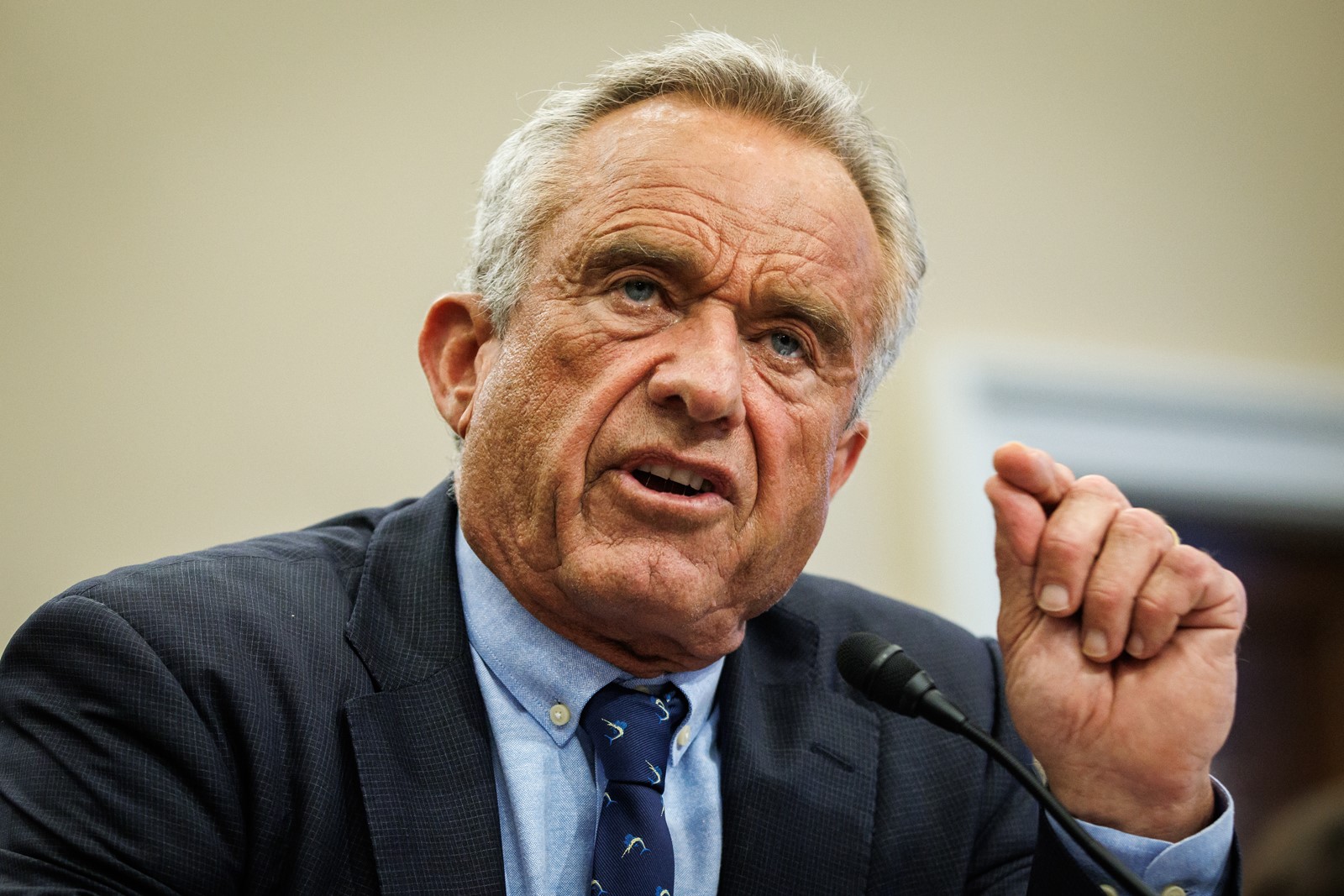
WASHINGTON — Health Secretary Robert F. Kennedy Jr. delivered a defiant defense Wednesday of his drastic overhaul of federal health agencies as House Democrats accused him of violating the law by shuttering whole divisions and cutting funding appropriated by Congress for medical research.
“We are not withholding money for lifesaving research!” Kennedy thundered at Rep. Rosa DeLauro of Connecticut, the top Democrat on the House Appropriations Committee, who lectured him on the language of the Constitution and Congress’ power of the purse.
DeLauro looked disgusted.
“Unbelievable,” she said, shaking her head. “Unbelievable.”
The back and forth with DeLauro was just one of a series of fiery exchanges between Democratic lawmakers and Kennedy during his first appearance on Capitol Hill since becoming health secretary.
The purpose of Wednesday’s hearing was for Kennedy to answer questions about President Donald Trump’s health budget for the next fiscal year. But Democrats focused instead on the mass layoffs and cuts Kennedy is already making, which they have condemned as part of what they call Trump’s “war on science.”
Trump has published only the broad outlines of his budget plan, which calls for deep cuts to the National Institutes of Health and the Centers for Disease Control and Prevention. In his opening remarks to the House committee, Kennedy said the cuts would save money “without impacting critical services,” according to a copy of his remarks.
The budget blueprint “recognizes the fiscal challenges our country faces today, and the need to update and redirect our investments to meet the needs of a rapidly changing world.”
But a remake of the health department is already well underway, engineered in part by Elon Musk and his team at the Department of Government Efficiency. It includes cutting 20,000 jobs — one-quarter of the health workforce. It also collapses entire agencies, including those devoted to mental health and addiction treatment, and emergency preparedness, into a new, ill-defined “Administration for a Healthy America.”
House Republicans largely praised Kennedy, but their questions revealed that they, too, were somewhat uncomfortable with his changes. Several asked about projects in their districts. Rep. Chuck Fleischmann, R-Tenn., who represents candy manufacturers, worried aloud that Kennedy’s plan to rid the food supply of certain petroleum-based dyes would cost his constituents money.
Rep. Stephanie Bice, R-Okla., urged Kennedy to protect a medical research foundation in her district. Rep. Riley Moore, R-W.Va., expressed relief that Kennedy had reversed the firings of more than 100 employees with the National Institute for Occupational Safety and Health, which helps protect coal miners from black lung disease.
The health secretary was also set to appear Wednesday afternoon before the Senate health committee, whose Republican chair will call on him to explain to Americans how his reforms “will make their lives easier, not harder.”
The chair, Sen. Bill Cassidy, R-La., is expected to call on Kennedy to articulate “a clearly defined plan or objective,” according to an excerpt from his prepared remarks. Cassidy voted to confirm Kennedy despite intense misgivings about his views on vaccines.
Kennedy, one of the nation’s most vocal vaccine skeptics, insisted to House members Wednesday morning that he had managed the current measles outbreak better than his counterparts in other nations. The outbreak, which began in West Texas, has killed two unvaccinated children and one adult, and has now sickened more than 1,000 people in 30 states, according to the CDC.
Kennedy has offered only a tepid endorsement of vaccination. He has acknowledged that vaccines are an effective way of preventing the spread of measles. But he has insisted that the choice to vaccinate should be voluntary.
He has instead promoted treating the disease after infection with alternative therapies, including cod liver oil, which contains vitamin A — a remedy that doctors said had sickened some children who took too much of it. DeLauro accused him of “promoting quackery.”
During the House hearing, Kennedy gave no quarter, trading barbs with lawmakers in a way that is unusual for any witness, much less one coming to Congress to ask for money to run his agency.
“I don’t know if you understand this or whether you are just mouthing the Democratic talking points,” Kennedy said to Rep. Josh Harder, D-Calif., who asked about cuts to Medicaid.
Kennedy clashed as well with Rep. Bonnie Watson Coleman, D-N.J., who asked about cuts to home heating programs. “My time has expired,” he said sharply, after she cut off his answer.
To that, Watson Coleman shot back: “And so has your legitimacy.”
But by far the most passionate Democrat was DeLauro, who survived ovarian cancer nearly four decades ago and has served in Congress for 34 years. She grew emotional after the hearing, as she spoke about how research funded by the National Institutes of Health had most likely saved her life.
“I’m here,” DeLauro said, fighting back tears, “because of the grace of God and biomedical research.”


 PREVIOUS ARTICLE
PREVIOUS ARTICLE
